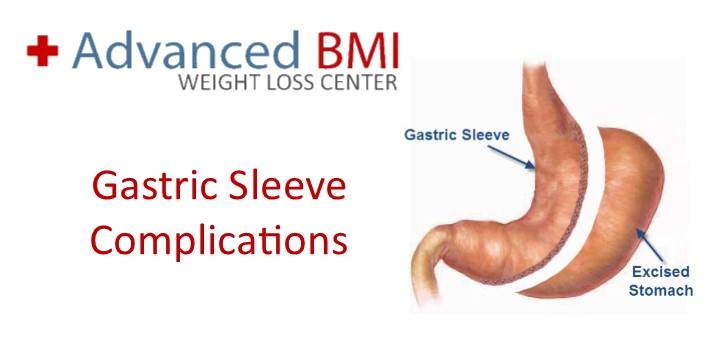Gastric sleeve complications could be dangerous. Gastric sleeve surgery at Advanced BMI in Lebanon is a common procedure that involves reducing the size of the stomach as a possible solution to weight loss, and for those with various weight related problems. The stomach is a ‘muscle’ that can stretch to hold up to 2 liters of liquid and food. Due to its stretching capability, it is common for people to eat way more than what is required for normal weight. This will stretch the stomach in a chronic way, and will make it bigger with time. At Advanced BMI in Lebanon, the surgery is performed to reduce the stomach capacity to around 200ml by removing and discarding up to 90%. Dr Nagi Safa recommends this procedure for those with a Body Mass Index (BMI) above 40, or above 30 with related overweight diseases. Like many other procedures, there are various gastric sleeve surgery complications to worry about, although such are rare.
What does the surgery involve?
A laparoscopic keyhole technique is used in gastric sleeve surgery where small incisions are made to cut off the redundant part of the stomach out. Patients are subjected to general anesthesia before the procedure and there are many pre-surgery preparations to consider. A device called a bougie is used to staple along the length of the stomach forming a tube-like much-reduced volume. The stapled part is then removed and sent to the pathology department for analysis.
What are the gastric sleeve complications?
There are many gastric sleeve complications that may arise, although most of them are quite rare. These complications can be broadly divided into two categories: acute (immediate) and long-term.
Acute gastric sleeve complications
There are several acute complications that can occur soon after surgery. These complications are rare but always require immediate medical attention. They include the following:
1- Bleeding
Post-operative bleeding roughly occurs once in 200 patients and often requires blood transfusion as it can get serious.
2- Leak
Patients may start to have leaks on the stapled areas (staple lines). It is the most feared of all gastric sleeve surgery complications as it roughly occurs once in every 100 patients. It can cause interactions with the surrounding organs and cause infections.
3- Wound infection
This is another possible complication which happens to different patients. It is common among those who have other overweight issues that affect the wounds and lead to infection.
Other acute complications include deep vein thrombosis and blood clot problems, chest infection and damage to organs that surround the operation area.
Long term gastric sleeve complications
Apart from the immediate acute complications, patients may experience symptoms many months after the surgery. These are referred to as long-term complications and include the following:
1- Adhesions
Many surgical procedures done on the intra-abdominal area are prone to long-term adhesions complications.
2- Wound closure
The wound may take longer to heal and has a low risk of hernia-formation.
3- Heartburn
Gastric sleeve surgery is often associated with gastro-esophageal-reflux and this may require acid-suppressing drugs. Dr Nagi Safa will generally discourage patients with acid reflux issues prior to the surgery.
4- Malabsorption
This is an occasional complication where nutrients and vitamins are not properly absorbed as they should. The problem can be remedied using vitamin supplementation and blood test monitoring.
Benefits and disadvantages of the gastric sleeve
The benefits and disadvantages of gastric sleeve surgery are quite obvious and straightforward. With a small stomach size, patients will end up eating much less thus avoiding the excess consumption that results in weight gain. What’s more, the stomach is known to secret enzyme ghrelin, which is associated with increasing appetite. When a considerable section of the stomach is removed, the amount of ghrelin secreted also drops. This results in low appetite, which also works towards reducing the consumption level. The only disadvantages of this procedure are the complications involved. As a delicate procedure, Dr Nagi Safa take many precautions to ensure patients are protected from complications. However, they still occur in some subjects and no one can be 100% sure they will go through safely. Nonetheless, they are very rare, and with advancements in modern surgery, most complications can be corrected before much harm is done.
Conclusion
It is important to be aware of the gastric sleeve complications before opting for the procedure. This allows you to take effective pre-surgery measures that prepare you for success. They also equip you for any long-term gastric sleeve complications and how to seek medical help. What’s more, you should comprehensively discuss with Dr Nagi Safa to determine whether you are the right candidate for the surgery. Most patients who have undergone the procedure achieve success and complications only arise when there are other underlying factors and problems.









